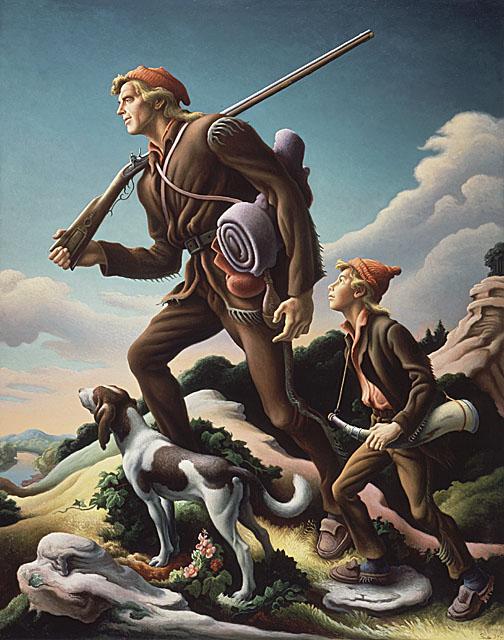The two met at a young age, but waited to get married. Jonathan was an explorer and wanted to explore the Mississippi River. Upon his return from his trek up and down the river, he wed his lady in waiting. The young couple started farming tobacco and made a substantial profit from it.
Jonathan and Rachel wanted to begin a family with their new found fortune and life. They soon had a son which they named Jonathan Junior, but he died soon after birth. The young couple conceived of another child shortly after the horrifying experience and they named him Andrew. Andrew went everywhere his father went, continuously by his side. This made conceiving another child almost impossible.
The success of their tobacco farm soon turned to misfortune. Rachel, un-lady-like as it was at the time, enjoyed smoking the tobacco she and her husband grew. Little did she or Jonathan know that this would be the cause of her death.
Jonathan wanted nothing to do with the home that reminded him so much of the woman he so loved. The explorer in him wanted to get out and away from the place that reminded him of Rachel. Jonathan sold the farm and house. He decided to journey west for a new life and a new start. The two packed light and began their new life.
Days were long. Nights were scary, well scary for the young Daniels. However he had his dog Jackson by his side and his real life hero, his father, to protect him. To pass the time along their journey the two would sing songs and play various games. There were times where the journey became lonesome for both Daniels, even though they had each other.
“Are we there yet?” asked the young Daniels to his father. “Do we even know where we’re going?”
“We’ll know when we get there,” said the father.
“How?” replied the son.
Jonathan remained quiet as the two pressed on. Jackson sniffed bushes and trees causing him to lag behind at times.
“What about California?” asked Andrew.
“You hoping to find gold?” replied the older Daniels.
Andrew just smiled as he over took his father’s lead on the journey.
“Oh, so you’re leading us now,” said Jonathan. “All grown up.”
Andrew started up a hillside with his father and dog in tow.
“You know California is a long way away,” said Jonathan. “There are no trains and we might come across some Indians.”
Andrew paused on the hillside almost contemplating moving forward. Then almost has if hit by a bolt of lightning he looked toward his father. “We’ll find a way.”
Jonathan patted his son on the head and took the lead up the hillside. The two Daniels and Jackson ventured up the hill not knowing what was on the other side. They finally reached the top of the hill over looking a river valley and the westward journey that awaited them. For a moment they were alone, no signs of civilization for miles around them. No signs of life, nothing but the father and son, and their dog. They were explorers on a journey for a new life.
“That’s where we’re headed,” said Jonathan as he pointed out west. “You can’t see it yet, but our new life is out there.”
Andrew looked in amazement at the far off land of wonder which awaited them.
“You think mom would’ve liked this,” asked Andrew.
“You’re mother would have liked this view,” said Jonathan. “But she was a farmer’s daughter not an explorer.”
Andrew found a rock to sit down on, taking a rest from the long trek. Jackson walked over to him for some attention.
“So if she hadn’t died we’d have stayed home?” asked Andrew.
Jonathan looked down at his son. “We had a good life.”
Andrew sensed his father was finished with this topic of conversation. “Will we have a good life again?”
Jonathan touched the top of his son’s head and then bent down to pat Jackson. He then looked out over the journey ahead of them. “Only time will tell son.”
He began down the hillside toward the new life which awaited them. Andrew jumped up off the rock and Jackson quickly followed behind. Down the hill they went as they continued on, unsure of the future in store for the two Daniels and their dog.

“The Kentuckian”
by Thomas Hart Benton
1954